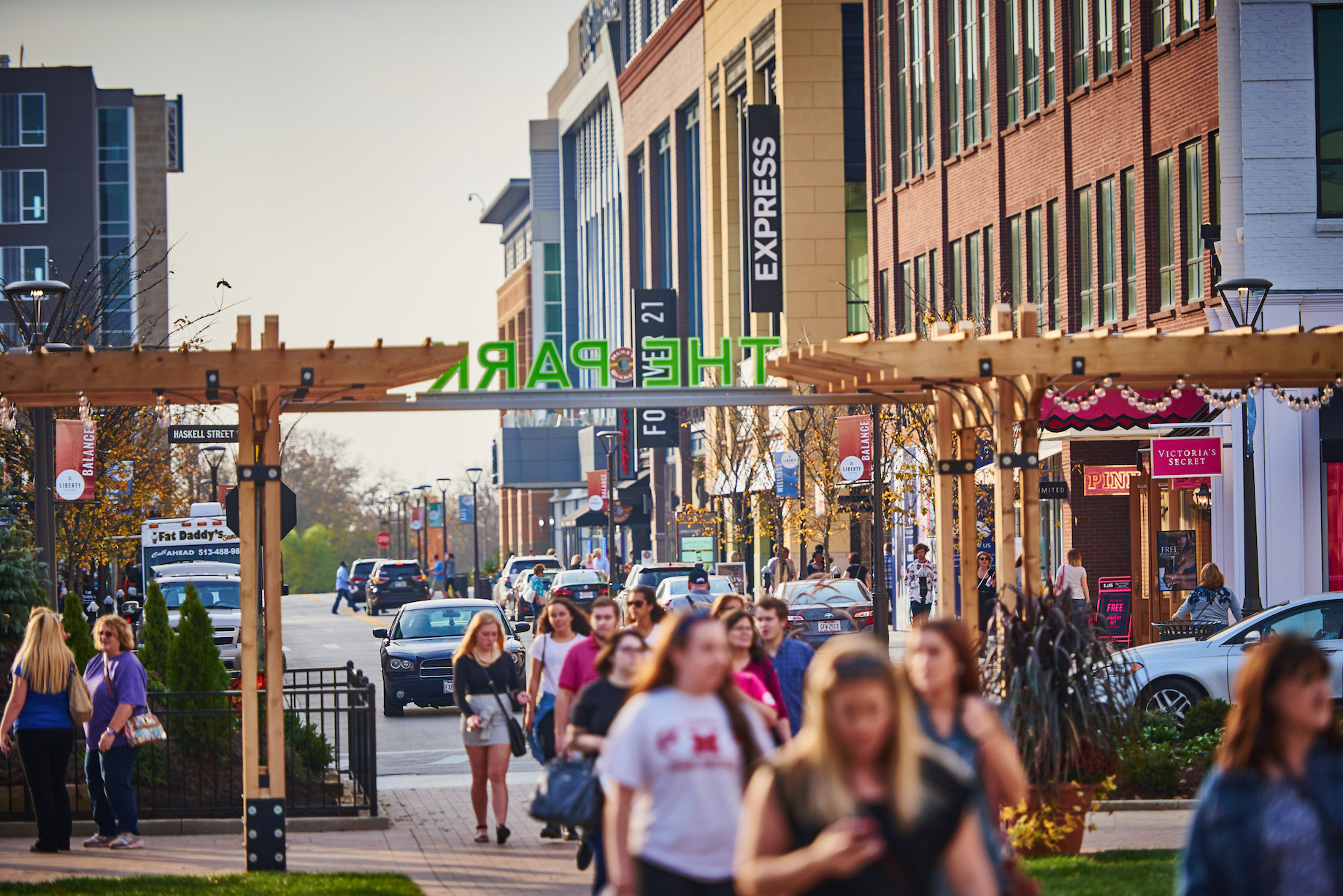Mall owner Centennial has been formulating a plan to reposition its properties, and now it has acquired an open-air, mixed-use company, Bayer Properties, to advance that cause. This week, Centennial acquired Bayer’s team, property management contracts and infrastructure, though not Bayer’s actual properties.
Bayer owned about 35% of the 8 million square feet it managed, according to Jami Wadkins, who was president and CFO of Bayer and now is COO of Centennial. Those properties were not part of the acquisition, and she said they will remain family owned.
In addition to the third-party management contracts Centennial has acquired with Bayer, Centennial also will manage the properties that were not part of the deal. Whitney Livingston, who had been president and COO of Centennial and continues as president, said Centennial owned about 65% of the 15 million square feet in its pre-merger portfolio. Centennial had moved into third-party management during COVID. It served as a way, during that capital-constrained period, to align with strategic partners with which it ultimately would like to invest, Livingston said.
What the Deal Does for Centennial
But this deal’s purpose was not about third-party management. Rather, it’s about Bayer’s mixed-use and open-air abilities. Centennial’s announcement of the deal presented the merged company’s capabilities as “the industry’s best playbook for how to reposition and redevelop dominant mixed-use developments.” Centennial can well use Bayer’s expertise as it leverages the strong locations of its malls and redevelops them into modern marketplaces. “Successfully transforming these centers includes reducing the enclosed mall space and adding complementary open-air retail space, as well as multifamily and independent-living residences, hotels and offices,” Livingston said. “Bayer has been an owner, operator and developer of open-air retail space for almost three decades. Its merchandising, placemaking, design and attention to detail are exceptional.”
Both companies provide leasing and merchandising, investment and asset management, development, property management, marketing, construction, tenant coordination, research and technology services.

Among the properties Bayer Properties adds to Centennial’s management portfolio are Cincinnati, Ohio’s Liberty Center, above, and Huntsville, Alabama’s Bridge Street Town Centre, at top.
The deal occurred as Centennial already was building up its open-air and mixed-use capabilities. “We knew that the open-air space was important to our business, and we certainly have team members internally at Centennial before the acquisition that have worked in the open-air space and that have been a part of our company’s history, although not as prevalent currently,” Livingston said. “We were just focused on building the development and the leasing team as a part of our redevelopment plan, and so this became a more efficient and what I think will be a more successful way of doing it.”
From Bayer, Centennial will gain about 85 employees, bringing its roster to about 300. Bayer’s Birmingham, Alabama, headquarters and its Philadelphia and Lexington, Kentucky, offices will become Centennial regional offices. Centennial, which is based in Dallas, already has regional offices in Chicago and Orange County, California. The deal also adds Alabama, Georgia, Kentucky, Nevada, New Jersey, Ohio and Tennessee to Centennial’s portfolio, bringing the states where it has a presence to 18.
How the Deal Got Started
The deal got its start at the ICSC – Here, We Go. 2021 conference in Las Vegas in December. The companies knew of each other and so set up a meeting at the conference just to chat. “We were just talking about the growth of our businesses and what was working and what wasn’t working and how we were thinking about expansion,” Livingston said. “And that eventually, after really understanding how aligned our two business were, turned into a conversation about combining the two platforms into one. It was a truly organic conversation that turned into a deal we’re all really excited about.”
Heading into that meeting in Las Vegas, Wadkins said, Bayer didn’t have grand plans to sell, either. “Everyone is always trying to look for ways of improving themselves and their space and that’s something that we were certainly always open to, but no we did not walk into the initial meeting with Centennial with that on our minds. … The more we talked, the more sense it began to make.”
Centennial, meanwhile, has started buying properties again, after having been quiet on that front since 2017. It has acquired three enclosed malls: Hialeah, Florida’s Westland Mall in December and Dearborn, Michigan’s Fairlane Town Center and Plano Texas’ Shops at Willow Bend in May. And in April, it added two properties to its third-party management portfolio: Center Valley, Pennsylvania’s Promenade Shops at Saucon Valley and California’s Shops at Montebello. Bayer, meanwhile, just made news with a groundbreaking on an adaptive reuse Opportunity Zone project in Birmingham called The Hardwick.
By Amanda Metcalf
Editor in Chief, Commerce + Communities Today